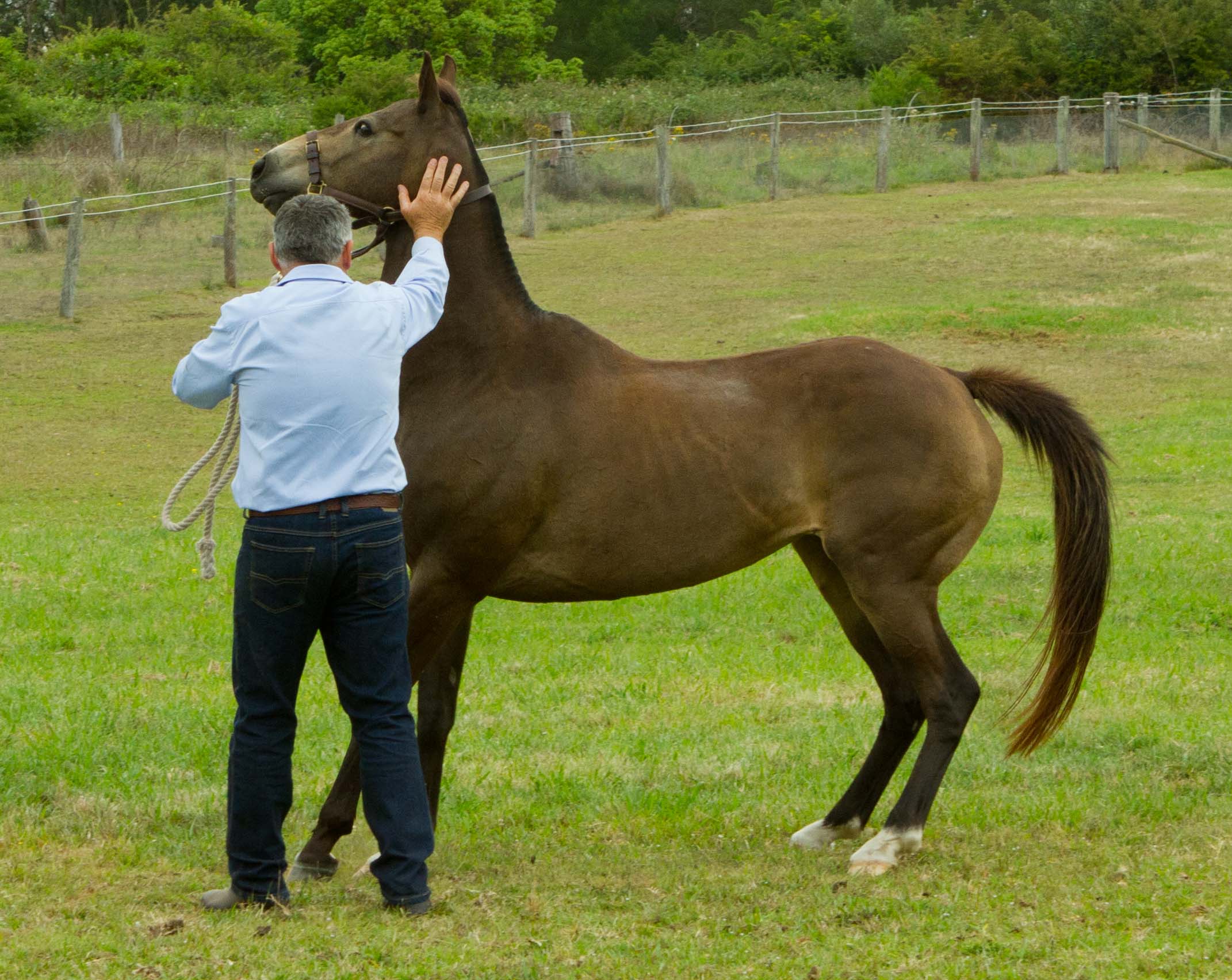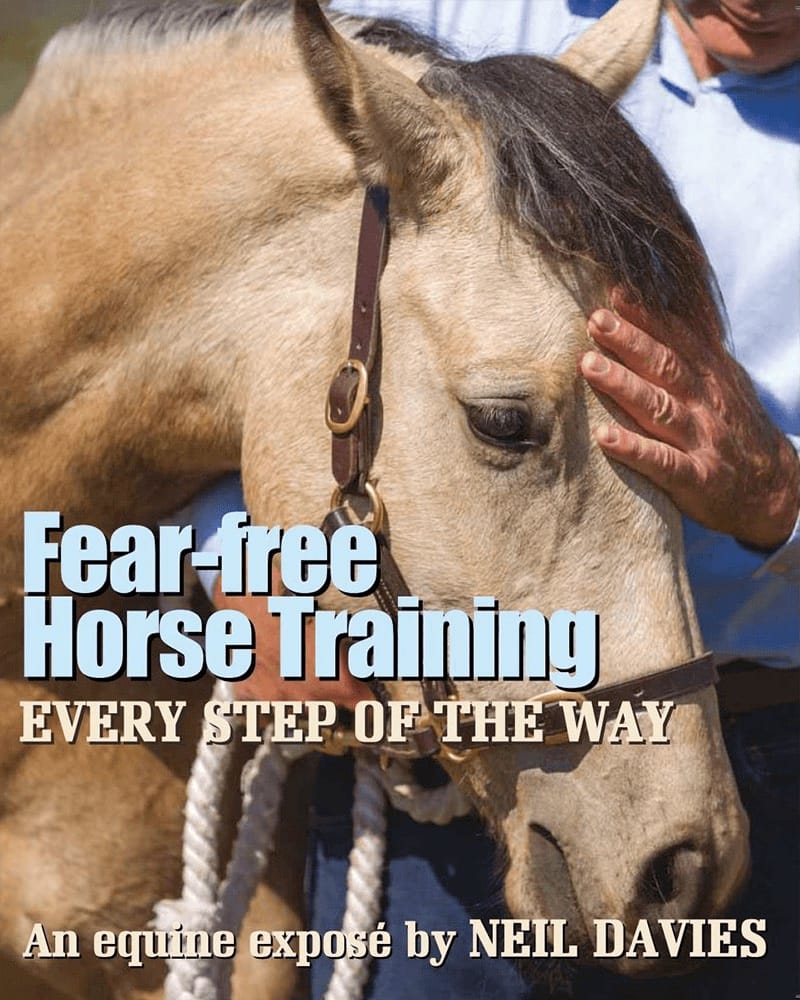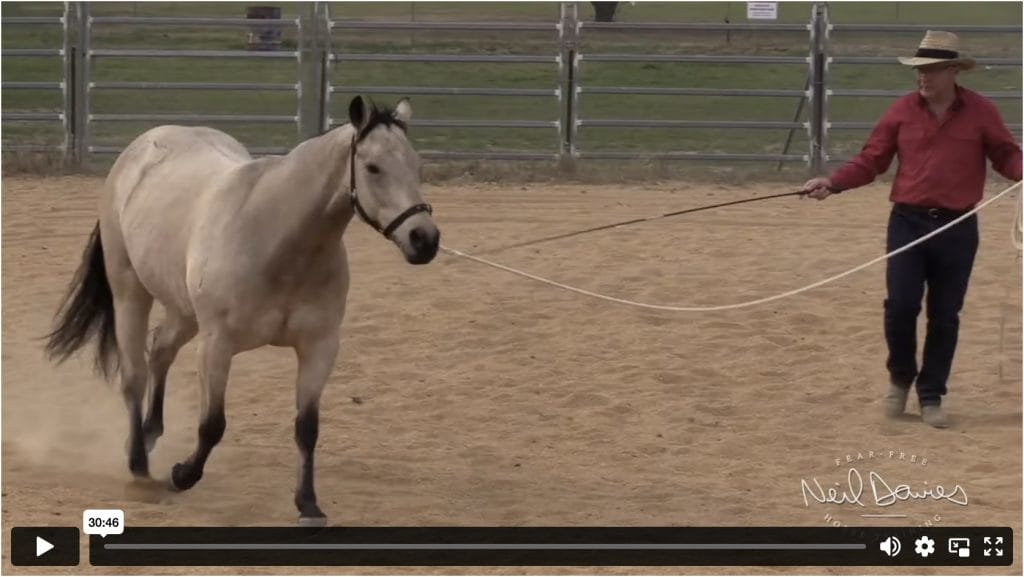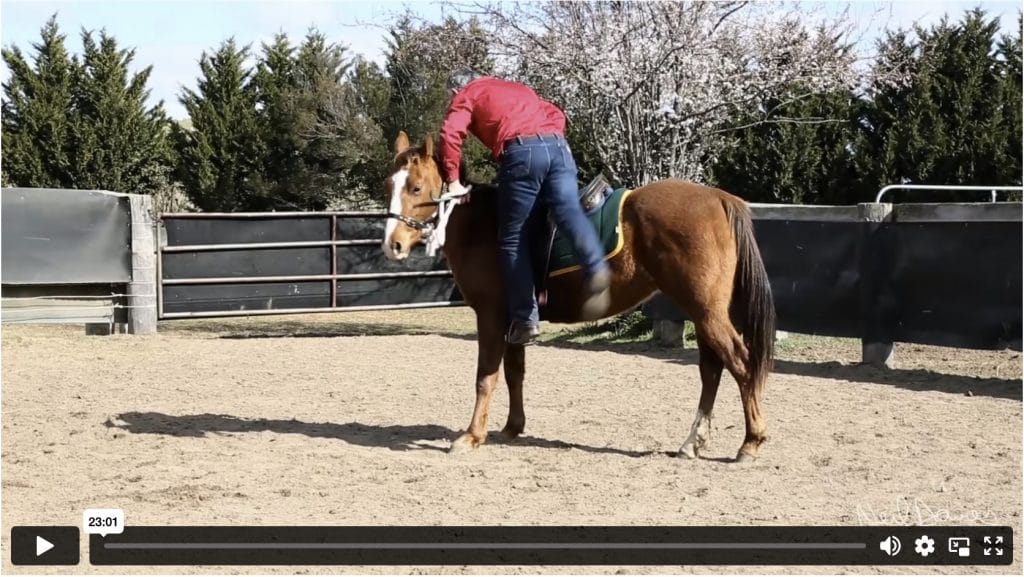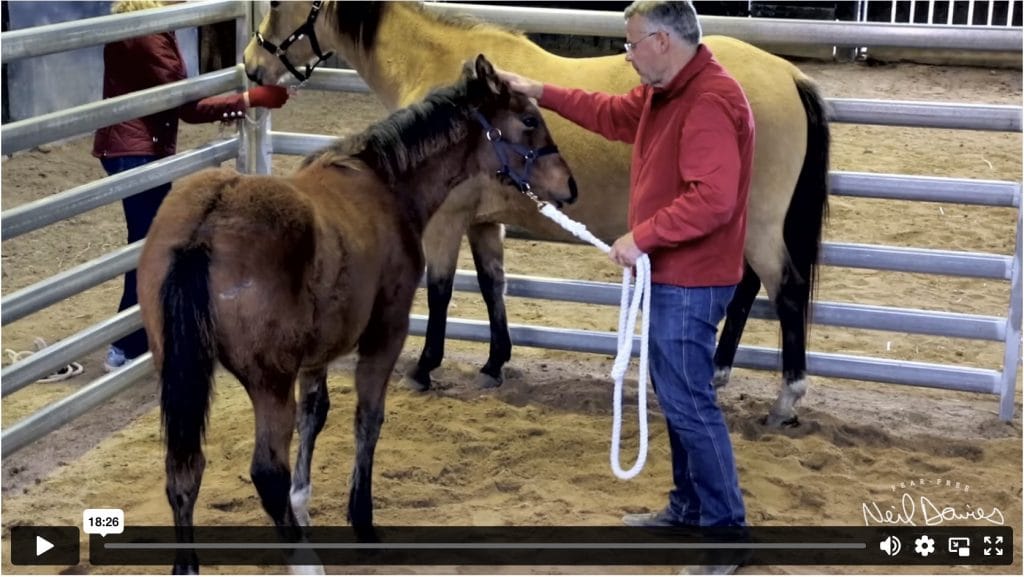Campdrafting started to become popular in Australia in the late 1970s.
I was about eighteen when I started competing at local campdrafts and like most eighteen year olds, I thought I knew everything.
However, after getting cracked off (disqualified) more times than I care to remember, it finally dawned on me that maybe I didn’t know that much after all.
Around this time, I was given a stock horse gelding called Caesar.
He was very fast and very athletic and he’d already won a couple of campdrafts.
However, Caesar had been pushed far too hard at every campdraft he’d ever been in.
He’d been kicked and spurred when he was already trying his hardest.
Under the pressure of competition, it’s all too easy to keep asking for more and more, even though your horse is already trying his hardest.
If you keep kicking and spurring a horse that’s already doing his best, it won’t be long before the horse starts to become very nervous and worried, whenever he’s in a competition situation.
And this is exactly what happened to poor Caesar.
Every time I rode into the yard at a campdraft, Caesar immediately remembered all the previous stressful experiences he’d been through and he became very nervous because he expected another bout of kicking and spurring.
It got to the point where he’d stop thinking and he’d rear or ‘freeze up’.
His mind stopped working in its normal logical manner because the stress was way too much for him.
I thought that I’d be able to teach Caesar to relax by working him at home.
I spent months walking him around cattle and working them in the yard.
Caesar gradually improved and started to relax, so the next season I took him to some campdrafts.
And guess what?
Nothing had changed.
Under the pressure of competition,
Caesar immediately became very nervous.
He hadn’t forgotten all the stress that he’d been subjected to.
It was burned into his mind.
He expected another bout of kicking and spurring and he’d shut down and stop thinking altogether.
It took me a while to realise that poor old Caesar had been overdone and would never be a reliable campdrafter.
So I sold him to a local fellow who just wanted a horse to ride and they got along fine.
This was a very good lesson for me.
It taught me that you can’t expect any horse to forget any stressful experience that he’s subjected to.
Learn why it’s so important to never stress your horse with my book,
You can’t overdo your riding or training and think that it doesn’t matter.
You can’t keep asking a horse for more and more when he’s already doing his best.
Over the years, I’ve seen many horses like Caesar.
Horses that have been pushed too hard when they don’t understand what’s wanted.
Horses that try to avoid going into the yard at a campdraft.
Horses that rear and jump at the start of a competition or a race.
Horses that stop thinking and rear or “freeze up” when things get too much for them.
I’ve had many such horses sent to me for training.
Although most of these horses can be improved at home, under the pressure of competition they’ll revert to their old behaviour.
You must be very careful whenever you compete with your horse.
In the heat of the moment, you may get worked up and push your horse too hard.
And if you do, you can’t tell him to forget the stress and trauma that you’ve subjected him to.

